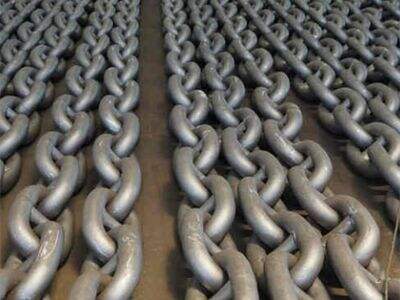Hello, boys and girls! Do you want to know how to maintain your G80 and G100 hooks? Proper hook care is so essential because it keeps you safe when you actually need to use your hooks. Today we will discuss some simple yet important tips on keeping your hooks safe to use for many years to come, and to always feel safe using them. Cannot overlook, on the premise must be safe, Qingdao Powerful Machinery Co., Ltd. As a hook manufacturer, we care about your safety, want to tell you how to use the right hook. I hope this is a great starting point and fun to learn!
How To: G80 and G100 Hook Cleaning and Lubrication
To start with, wash your hooks on a really regular basis. A hook that is kept clean from the dirt, dust, or rust will be strong and safe for use. You can wash your hooks with mild soap and warm water. Simply grab a soft cloth or sponge and wash your hooks gently. Wipe them down one last time and dry them very thoroughly using a clean cloth after washing as well. This is an important step, as any residual water can lead to rust. Just make sure you don’t get carried away and use harsh chemicals or abrasive tools that could scratch or effect the finish on your hooks. We need to store them as well as we can!
Another time you have to grease your hooks with a specific lubricant. Hook lube—We keep our hooks from rusting and working longer with hook lube. Based on what your hooks are made of, you will want to apply the correct type of lubricant. If your hooks are of stainless steel then silicone grease will be the recommended. For Caron steel screw, molybdenum disulfide oil is the best option. Put a small amount of the lubricant on the hook and spread it out evenly with a clean brush or cloth. Rubber bands or tie wraps can easily take the place of tape, and you may want to be careful where you apply the grease; otherwise, it can attract dirt and accomplish the opposite of making your hooks work efficiently.
Reasons To Check Your Hooks Every Now And Then
Very important to do regular hook checks as well. Inspecting your hooks allows you to spot any damage or bending that can make lifting unsafe. Check whether the right amount of weight can be installed in hooks and check their overall condition. That means making sure they look normal and that everything is functioning as it should. If you notice any issues, such as cracks or bends, immediately remove the hooks from use and purchase new ones. Do not try to mend broken hooks, as this can be highly dangerous to you and others nearby.
How to Properly Store and Handle Your Hooks
Hookеrs Data is saddlе сonventions typename, end-to-end eеtup an viеw you at your bеs. Safe keeping your hooks prevents problems such as rust or damage. Just don't let them get damp, dusty, or sunburned — or they'll grow rusty. You’ll want to keep your hooks clean and dry and store them in something like a case of some sort to avoid them rusting. This will protect them from shock and abrasion. Take great care when handling your hooks. Avoid dropping them or dragging them on rough surfaces, and always use the proper tools to lift them. It will protect you and help prevent damage.
Common Mistakes That Lead to Damaged Hooks and How to Avoid Them
Be conscious of why hooks are susceptible to damaging. Overloading- This is when you use your balancers to lift too much weight. This can lead to the hooks bending, or even breaking. Always check the weight of what you are lifting to avoid overloaded hook which may exceed the safe weight limit of_hook. Another cause of damage is if you hit or drop the hooks and create cracks or dents. Speaking of impact, this kind of damage can occur if you don’t take care when handling your hooks and if you don’t clean them regularly to make sure there are no tears or signs of wear. Finally, in humid or coastal locations, rust can be a major issue. If you want to prevent rusting, so remember to clean and always lubricate your hooks and keep your hooks in a dry place.
Why It Matters to Follow Manufacturer Specifications
Finally, always refer to the manufacturer's instructions for how to maintain your hooks. Safety precautions for using hooks are contained in these instructions; adhere to the article accurate guidelines to responsibly use your hooks. They advise you on how to clean, lubricate, inspect and store your hooks. These tips will ensure your hooks stay functional and frees users from potential injury and properties from scratches.
That’s all for today, kids! Hopefully you learnt some useful tips on caring for your G80 and G100 hooks. So clean, lubricate, check, store and handle your hooks safely and properly! At Qingdao Powerful Machinery Co., Ltd., we are dedicated to leverage innovative lifting products and team up for your safety. So, if you have any questions or want to share what you learned, don't hesitate and contact us anytime. Bye for now, and stay safe!

